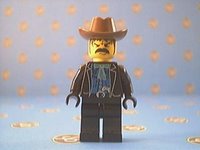First, being a grip is easier than being a production assistant. The thing about being a PA (or anything on the production side, for that matter) is that you have to deal with all the problems that no one wants to deal with.
I was reminded of this when we got to the end of the first day and the picture car couldn't leave the set because it wouldn't start. No one wants to deal with a stalled car in the middle of the night and, for the first time, I didn't have to. That's a real privilege.

Second, I have a long way to go before I'll feel I deserve that privilege. I have so much to learn; what the different lights are called, how to weight a C-stand with a kino at the end of a long arm, all the way up to how to light a scene as simply and quickly as possible. It's a good part of why I decided to be an electric - I learned plenty by being a PA, but it gets a lot harder to learn when it's week 3 and I'm getting five hours of sleep a night. Grips get to go home and absorb what they've learned, possibly while drinking a beer, before collapsing in exhaustion.
That said, I also learned that G+E work is something I can do. Electric work is pretty intuitive, at least at the level I'm working on. The great Harry Box says that no particular process you need as a lighting technician takes more than five or ten minutes to learn - the trick, of course, is putting these techniques together to light a scene well and efficiently.
The other difference between production work and grip and electric work is that their work runs so completely parallel that it is almost like they are working on two different movies.
Production work is, by definition, support work: production is responsible for logistics, keeping the crew happy, transportation. The goal of the production crew is to make everything happen so the crew can work, so the director can say "action." When the crew is ready to set up a shot, production has done its job. When the camera rolls, PAs are busy again, making sure outside elements (namely, noise and members of the public) do not interfere with the roll.

G+E work rhythm is almost exactly opposite that of production: grips work to set up a shot and then stop working when the camera rolls (although they have to hover nearby in case something needs a quick fix between takes.) At first, this was really, really disorienting, because my brain kept getting ramped up to work during shots and wound down during set ups. I had to turn everything around, like trying to write with my left hand.
PAs listen to the Key PA, who listens to the Assistant Director, who listens to the director, department heads, and the Production Manager. They work with the other supporting departments, the one who work between takes and off-set: locations, the production office, catering and craft service, wardrobe, hair and makeup.
Grips, electric and camera people have to communicate with a parallel hierarchy. I was wrangling video cable on this Russian film I worked as a PA for last week. The DP was talking to the camera crew, and I asked the 2nd Assistant Camera if I could position myself a certain way without interfering with a shot. He answered, very quietly, "Yeah, but, Shh!"
In production, when the DP is talking and he isn't asking for a bottle of water or for you to get out of the shot, it means, your job is basically done. In the camera department or G+E, when the DP talks, you better listen.

The other thing is that I was privy to a whole different set of decisions. Figuring out how to light a scene is a much different problem than figuring out how to get enough water on set. For one thing, there's a lot more possible answers. Four people trying to solve the same lighting problem can easily come up with twenty different solutions. At some point, the DP just has to say he likes what you've got and it's time to move on (ADs are also good for this).
Lighting a scene is also a finite problem - you do your thing, and then you live with it while they shoot. Production problems are never ending - if you're done with the problem of right now, you've got to start thinking about the problems you'll have later today, or tonight when you have to get the trucks back, and of course you have to know at least tomorrow and the next three days and you're advanced schedule and what's going to happen when you run out of water or if it rains.
Maybe that's why G+E work feels so much less exhausting than PA work (so far, anyway). I guess I'll find out this week - I just got a call for some electric work starting tomorrow. See you at 6:30 a.m., America.






